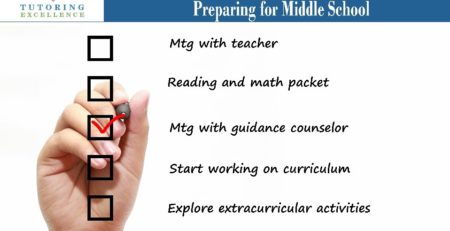How to Combat Spring Fever
Spring break is almost here! The sickness called “spring fever” along with procrastination is in the air. With everything students have on their plates, procrastination will destroy their grades. Being organized combats these feelings. So here is a prescription of five organizing tips to combat spring fever and finish the school year with success.
Create a focused calendar.
This is the time of year where students are given big projects: reports and science/group projects. March is also where students’ extracurricular activities have big events: band, choir concerts and plays. With all this going on, keeping on a study routine becomes difficult, and assignments can fall through the cracks. Procrastinating assignments or even spacing assignments out becomes easy. Therefore, an assignment calendar becomes essential for students to keep focused. An assignment calendar should include: all extracurricular activities, assignments, projects, homework, free-days, family time, and study sessions. With a deliberate focus on what is needed to be done, one will stay on track.
Break down large projects into manageable pieces.
The old saying goes, “How do you eat an elephant?” The answer is simple: “One bite at a time.” Getting started on a big project can be difficult or even intimidating. Therefore, to make a large assignment manageable one needs to break down the assignment into several smaller steps. One should then take these manageable pieces and put them into chronological order, with an estimate of how long each part will take. Now one can set goals to enable the project to get done. For example, on this date “Select report topic,” on this date “Write essay introduction,” and by this date one will complete the project. Now one needs to add these to one’s planner and calendar. By keeping up with these smaller steps, one will eliminate the stress of trying to finish the entire project the day before it’s due.
Sort assignments by completion date.
Most students can estimate the amount of time an assignment will take. To build one’s confidence, start with the assignments that will take the least amount of time and then move on to the more difficult ones. Students can get hung up on subjects they do not enjoy, so start with one’s they like first. For example, maybe one’s child likes reading, but struggles with math. One should start with the reading assignment first, developing a sense of accomplishment, and then move onto one’s math assignment.
Schedule breaks.
The old saying goes, “Work smarter, not harder.” A marathon session of non-stop studying can drain anyone. Working harder by having a marathon session of homework is not an effective studying technique. Students need breaks. A break can be as simple as taking a few minutes to walk away from one’s desk and clear one’s head. Exercises as simple as jumping jacks and a walk around the block can refresh one’s mind. Working smarter, therefore, is taking a short, 5-minute break after every 30-minutes of work.
Work to Get Ahead.
When one’s child has caught up with all their missing assignments and projects, one should work ahead. One never knows when one will be sick, need a weekend break or have overlapping extracurricular events that make doing homework impossible. For example, if one needs to read a book for English class, find out which chapter will be due on which dates. Instead of just reading the assigned reading, read ahead so there will be less reading in the future. Working ahead allows one to focus one’s energy into little and big projects, insuring they are the best one can produce.
Still think your child could benefit from some extra pointers? Consider Tutoring Excellence Study Skills program! Our tutors use a variety of study tips and strategies to help get your child more organized, strategically plan projects and achieve goals!












